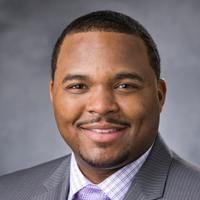ASSOCIATION BETWEEN SOCIAL SUPPORT AND PHYSICAL FUNCTIONING IN OLDER AFRICAN AMERICANS
Abstract
Type
Department
Description
Provenance
Subjects
Citation
Permalink
Collections
Scholars@Duke

Michael Paul Cary
Dr. Cary is an Associate Professor and Elizabeth C. Clipp Term Chair of Nursing in the Duke University School of Nursing. Dually trained as a health services researcher and applied data scientist, Dr. Cary uses AI and machine learning to study health disparities related to aging and develop strategies to advance health equity and improve healthcare delivery to older adults in diverse populations. His research has been supported by the National Library of Medicine, National Institute of Nursing Research, and the Duke Clinical and Translational Science Institute. He has published more than 50 manuscripts, book chapters, and editorials and has mentored numerous students and faculty members. In 2022, he was inducted as a Fellow of the American Academy of Nursing for his significant contributions to improve health and healthcare.
Most recently, he was selected by Duke Health to be the inaugural AI Health Equity Scholar. In this health system leadership position, he leads an interdisciplinary team in identifying clinical algorithms that perpetuate racial and ethnic health and health care disparities and implementing system-wide standards for mitigating their harmful discriminatory effects on patients. These meaningful contributions are vital to addressing health disparities and promoting equitable health outcomes for all patients at Duke and beyond.
Dr. Cary received a bachelor’s degree in health services administration from James Madison University. He also earned a bachelors, masters, and doctoral degree in nursing from the University of Virginia.
Unless otherwise indicated, scholarly articles published by Duke faculty members are made available here with a CC-BY-NC (Creative Commons Attribution Non-Commercial) license, as enabled by the Duke Open Access Policy. If you wish to use the materials in ways not already permitted under CC-BY-NC, please consult the copyright owner. Other materials are made available here through the author’s grant of a non-exclusive license to make their work openly accessible.
